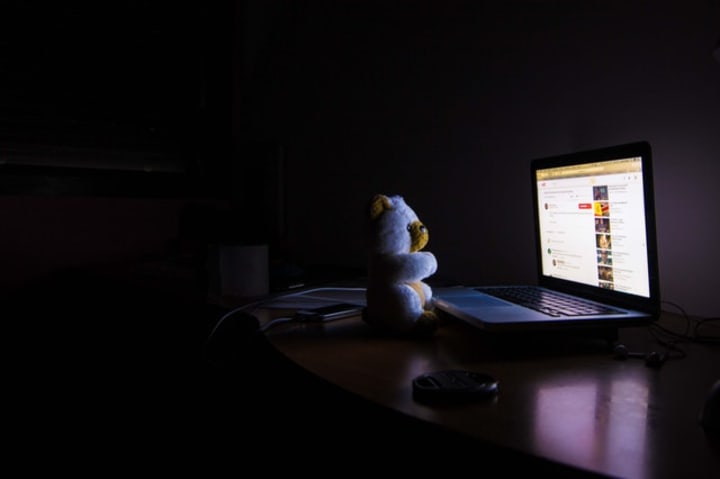
Aside from diet and exercise, there are two major factors which will influence the process of your weight loss or the way you hold on to body fat.
Being aware of these is extremely important, as they play a larger role than the majority of people realises. Sometimes it isn’t that you need to eat less, or exercise more to continue losing weight—you just need to optimise these variables.
The impact they can have on all aspects of your health and fitness is incredible, you should be focusing on these if you want to be able to lose weight quickly, easily, and enjoyably.
The factors are:
- Stress Levels
- Sleep
The amount of sleep you get and stress levels will both negatively impact the process of weight loss in the same way, for the same reasons.
Stress levels will play havoc with any consistency and longevity in your fitness plan. However, we aren’t talking about the stress which typically comes to mind when you hear the word. And the reason both sleep and stress impact you in similar ways is because:
Lack of sleep is stress on the body.
Sleep is the absolute best form of recovery you can get, as it puts you into a deep parasympathetic state. Put simply, these means an extremely relaxed state where you are free to rest, relax, and recover in the most optimal way.
A certain amount of this is 100 percent necessary for every single human being.
As I’m sure you know, the recommended amount of sleep is 8 hours. The actual ideal amount of sleep can range based on the individual and how active they are, which typically tends to fall between 7–10 hours of sleep per day.
If you think that sleep isn’t necessary, or is overrated, think about it this way:
As humans have evolved over thousands and thousands of years. We have adapted to not need things which aren’t absolutely necessary to survival, in order to help us survive as best as possible. Could you imagine humans evolving to not need to drink any water, ever? No.
Sleep is the same. If sleeping was not absolutely critical to survival, then we would have adapted to not need so much of it, or need it at all by now.
With the importance of this in mind, it is clear to see why lack of sleep is a stress to the body.
If you’re struggling to lose weight, and serious about your goal, click here for professional help.
Why Does Stress Affect Weight Loss

There are several reasons why stress will affect your weight loss journey.
Emotion triggered cravings
The term "stress eating" wasn’t created for no reason.
Increased levels of stress will genuinely increase the cravings your body will have for food which is typically unhealthy for you.
Sugary foods and high-calorie foods tend to be the main issue in these situations. The reason for this is that the sweet taste releases temporary endorphins which reduce your stress and improve your mood.
Your body isn’t stupid and knows this, so will, therefore, try to take these food items in, in order to improve the state of stress which you are in.
This will clearly affect your weight loss, as these sugary foods tend to be very calorie dense, meaning that they will increase your daily caloric intake above what it needs to be in order to lose weight.
One craving triggered binge could be the difference between losing and gaining weight.
Not only this, but sugary foods like these spike your insulin. This will make your cravings get worse, and continue for longer, making you want more of these foods, more often.
Therefore, by allowing stress cravings to get to you, you are setting yourself up for long term issues when trying to lose weight.
Prioritisation
The other reason that stress negatively affects weight loss goes back to the evolution of humans.
Stress used to be in our lives very differently than it was today. Rather than small, ongoing stress throughout the day—such as sleep deprivation, bright unnatural lights, and pollution—it would come from survival situations such as hunting for food.
This has to lead to the body associating stress with a lack of food.
In response to this, the priority of the situation will be to minimise stress, rather than letting go of such a valuable resource—stored energy.
This means that you will hold onto stored energy (fat) as a survival mechanism. This obviously makes it much harder to lose weight, as rather than working with your body by putting it in the optimal state for fat loss, you are working against your body.
This is a fight that you will never win (while being happy and healthy).
Therefore...
When we stress our bodies from everyday life and the chronic lack of sleep which nearly every person has these days, our bodies natural instinct has evolved to be conserving energy in fat stores.
It is because of this that being stress and not getting enough sleep will make it much harder for you to lose weight, and cause you to store more body fat, more easily.
Sleep makes weight loss easier.
How to Optimise for Weight Loss

If you’re struggling to lose weight, and serious about your goal, click here for professional help.
It’s all good being aware that these are factors which will affect your weight loss, but how do you use this information to benefit you?
Well, you have to optimise your sleep and stress.
Simple, right? Wrong.
Low sleep and high stress have become a staple in current society, so improving yours is not always easy. In order to do this to allow for better and faster weight loss, follow these steps for each variable:
Sleep
The first step is to always know where you are.
Don’t change anything about what you’re doing, but be aware of what you’re doing. This means for 1-2 weeks, you need to take note of how many hours you have slept for each night, and how the quality of this sleep was.
These notes could look as follows:
Night 1 – 7 ½ hours, good sleep without waking up, woke up feeling fresh.
Night 2 – 7 hours, woke twice to use the bathroom, woke feeling groggy
Night 3 – 8 hours, solid sleep, woke once but felt exhausted when waking up
Night 4 – you get the point.
Once you know where you are, you can make small adjustments and measure the effects they have on you. If you skip this step like most people do, you won’t be able to see if you are actually progressing or not.
Do not skip this step!
Step 2 is to look for any potential patterns. You may find that you feel awful after 6 hours sleep, okay with 6 ½ hours, great with 7 hours, and exhausted with 8 hours.
This makes no sense at all, as you’d think more would be better, but unfortunately, the human body isn’t this easy, and everybody will have individual results with this. Find your optimal sleep length, and then set up your sleep to achieve this as many nights as possible.
Step 3 is to improve the quality of your sleep. The deeper the sleep, the more recuperative it will be, and the better you will feel its effects.
There are several ways to do this, but there are two you should focus on:
Aim the eliminate waking up during the night. For example, if you notice that you regularly wake to use the bathroom, try not drinking any liquid an hour before bed to see if this changes. If not, try an hour and a half, etc.
The reason for this is that the disturbance in your sleep is dramatically taking away from its quality. More than you know.
Aside from this, you can improve the quality of your sleep by the way you set yourself up for it. This means that an hour before you plan to sleep, you want to turn lights off. This tells your brain that it is time to rest, helping it to switch off. If you are unable to switch lights and devices off, use blue blocking glasses to help remove the harsh lights giving you day-time signals.
Don’t try to change everything about your sleep at once. Aim to make small adjustments for 1-2 weeks at a time, and keep track of how your sleep is every night. This will allow you to see the impact each change makes, and how far you have come from the beginning.
It may seem like a pain in the ass, but it’s worth it!

Stress
Unfortunately, stress levels tend to be harder to improve than sleep is.
To reduce stress, first we need to understand the two main types of stress;
The first type of stress is the quick, high impact type of stress which will stimulate adrenaline, and push you into fight or flight.
This is what you would experience if say, you were about to be hit by a car. Or being chased by a lion.
This stress will have a huge impact on you, but only momentarily. Once the car—or tiger—has gone, your stress levels will return to normal.
Obviously, this is the kind of stress which can’t be predicted or avoided. So we will ignore this.
The second type of stress is what we can optimise in order to improve weight loss.
The second type of stress is the acute, ongoing stress which we carry with us through the day.
It is the stress that gives us knots in our shoulders, needing a good massage, and the stress making us intolerant to colleagues in the office.
The cause of this is hard to pinpoint, as different people will have different stressors. However, there are some which are universally becoming an issue, which can be avoided.
First off, you need to remove clutter from your environment. The saying clean house clean mind really does apply. Having a crowded environment causes acute stress throughout your day—even though you won’t realise it at the time—you will feel relief when it’s gone.
Secondly, harsh lights from computer screens, our phones, and LED lights play havoc on acute stress levels. By wearing daytime blue blocking glasses, or actively reducing your exposure to these stressors, you will be able to reduce the stress throughout the day.
Thirdly, you have to be self-aware! Be self-aware and find out what is stressing you.
Is your phone vibrating in your pocket all day, making you anxious to sneak to the toilet and see who's messaging you? Turn it on silent.
Is traffic putting you in a mad rush to get to work on time? Leave earlier.
It really is as simple as finding the small, tiny things causing little, but ongoing stress to you throughout the day, and eliminating them one by one.
This will compound into huge stress reduction, and I guarantee you will notice it in the progress of your diet.
That isn’t the only benefit either! You will find yourself with fewer headaches, and obviously—less stressed out.
About the Creator
Ash May
Instagram: ash_training_nutrition
I'm a fitness enthusiast. From years of teaching and training myself in nutrition, health, and weight-lifting, I decided to turn my passion into a career and help others achieve the same success I have seen.






Comments
There are no comments for this story
Be the first to respond and start the conversation.